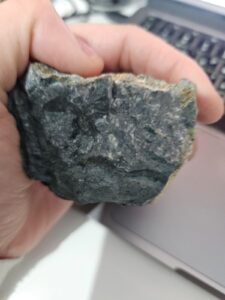While sustainability, transparency and good governance has been a growing trend, private equity and hedge funds have incorporated ESG principles in their investment decisions, discounting or emphasizing this information as they would any other financial input. As such, this bull market has really seen mining majors emphasising ESG principles and taking their plans to shareholders. Glencore, Pelagic Resources and Rio Tinto have used ESG principles to shape their company’s strategy.
Glencore targeted by Climate Action 100+
In February this year, Glencore, one of the world’s largest commodity trading companies announced plans to bring their climate strategies before a shareholder vote at its April AGM. The company further revealed its plans to reduce its total emissions footprint by 40% by 2035.
Glencore has been the target of shareholder activism on its lax climate change policies including being listed as a focus company by Climate Action 100+, an investor initiative worth over 545 investors and representing more than $52 trillion in assets. The initiative has established a common agenda across these investors to achieve clear commitments from the companies in which they invest to cut emissions, improve governance and strengthen climate-related financial disclosures. It is believed that by targeting the largest emitters, that they will be able to accelerate the transition to net-zero emissions by 2050 or sooner.
Pelagic’s strong corporate governance has resulted in significant investment
Singapore based Pelagic Resources has also committed to ESG principles. The company is currently promoting the development of the Steelpoortdrift Vanadium project, one of Africa’s largest vanadium greenfield projects, together with Australian-listed Vanadium Resources (ASX: VR8).
With respect to vanadium currently 85% of all vanadium comes from China, Russia and South Africa, with the former sources being highly polluting. New sources of environmental regulation are placing limits on China’s ability to supply, placing VR8 and Pelagic Resources in a very advantageous position to supply vanadium to the Chinese market in a sustainable manner.
VR8 has announced that it would adopt an ESG framework with 21 core metrics and disclosures created by the World Economic Forum (WEF).
Pelagic Resources is known for its commitment to environmental principles. It has a partnership with One Tree to donate $1.00 for each truckload of metal delivered by their organisation. One Tree is a non-profit organisation dedicated to global reforestation. It is this strong commitment to ESG principles that has helped Pelagic grow exponentially over the last two years and attract several significant investments. Since inception, the Company has closed four credit transactions with Teybridge Capital (“Teybridge”), securing an additional $20 million trade working capital liquidity for the Company’s expanding specialty ores business.
When asked what qualities Teybridge saw in the Pelagic group that made them want to partner with the trading firm, Eric Finaughty, director of Teybridge had this to say:
‘Tom Baring runs a sound business with an excellent management and operations team. He has a keen understanding of a funder’s credit risk concerns and “partners” with the funder. We like Pelagic’s strategy, encouraged by the milestones achieved to date and are proud to be part of its growth and success.’
Rio Tinto links managements’ remuneration to environmental targets
As with Glencore, Rio Tinto also became the target of the CA 100+. The upshot was that the company indicated that its TCFD-aligned Climate Change report would be put to an advisory vote at its upcoming 2022 AGM.
Furthermore, Rio Tinto announced other significant actions including setting Scope 3 emission reduction targets. Scope 3 targets refer to emissions that are the result of activities from assets not owned or controlled by the reporting organisation, but indirectly impact its value chain. Often Scope 3 emissions represent the majority of an organization’s total greenhouse gas emissions so their commitments to controlling these emissions is usually the most impactful on the environment.
Rio Tinto has gone a step further and has included its climate change targets as part of managements’ incentive plans. As such, managements’ compensation is now fully aligned with tackling climate change.
Concluding Remarks
While sustainability and adherence to ESG principles has been a central focus of mining companies for several years, investor activism is playing a growing role in incentivising the sector to incorporate this in their operations. While all very different companies, Glencore, Rio Tinto and Pelagic Resources have all adopted ESG principles as a key management focus in different ways.







